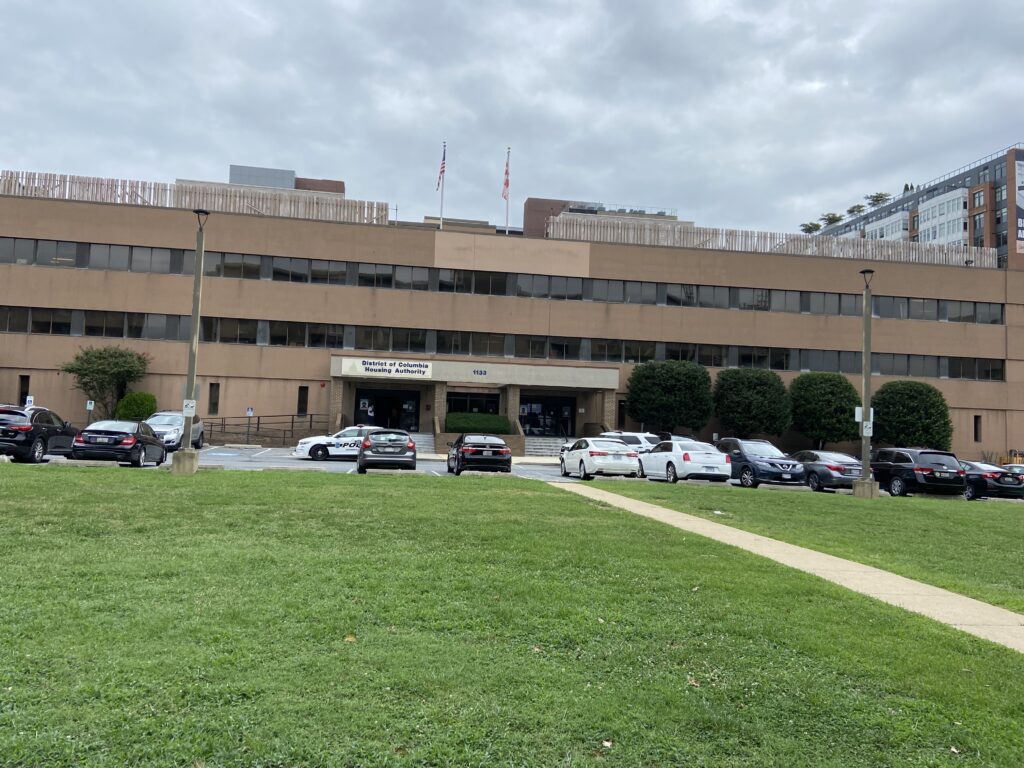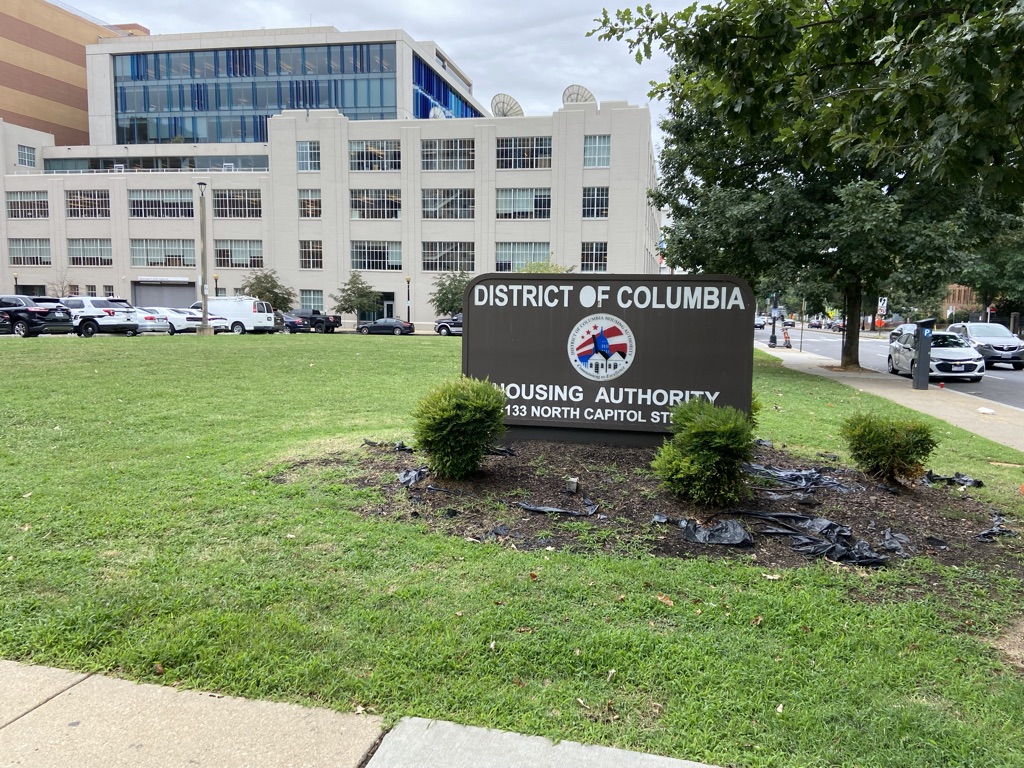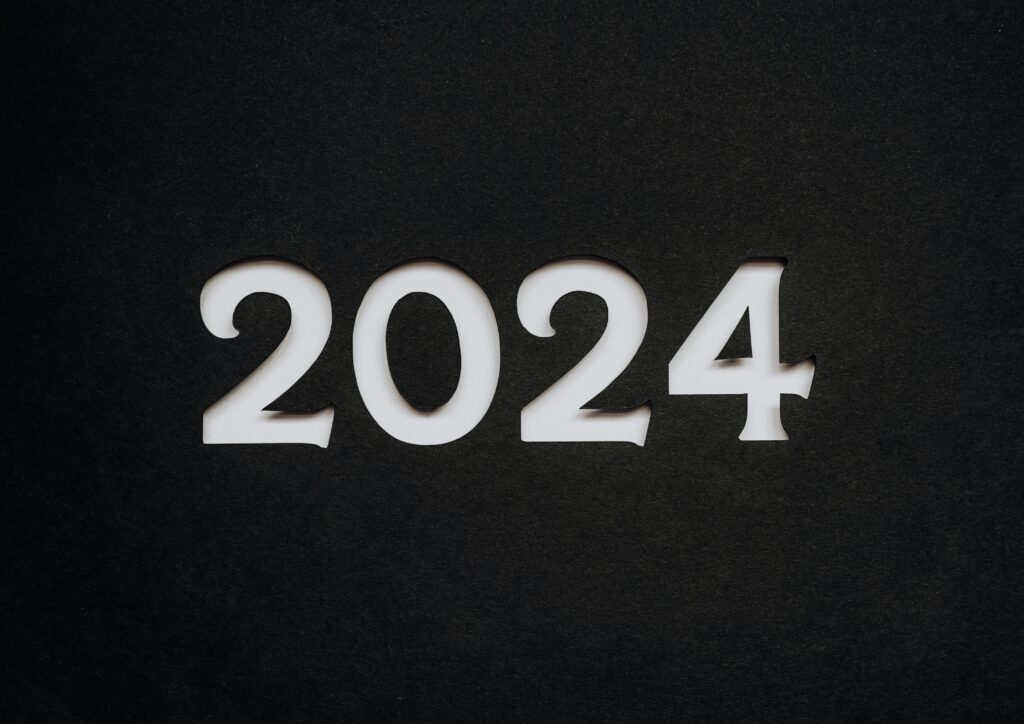Local housing advocates thought they had prevailed in their long-standing push to allow people seeking housing vouchers to self-certify their eligibility, but they’re crying foul after the D.C. Housing Authority (DCHA) distributed guidance that contradicts a key element of the regulations approved by the agency’s Board of Commissioners in February at the prodding of the D.C. Council.
Describing self-certification as key to getting applicants into housing sooner, the advocates object to the DCHA’s renewed insistence that people experiencing homelessness prove their identity by presenting a government-issued photo ID. What’s more, a nonprofit housing provider that works with survivors of domestic abuse says it is receiving inconsistent information on the implementation of self-certification.
The guidance distributed last month says explicitly that people applying for housing vouchers cannot self-certify their identity, notwithstanding the emergency regulations adopted by the Board of Commissioners. The conflicting signals are confusing housing advocates and providers, who are calling for DCHA to fully implement self-certification for tenant-based vouchers issued through the Local Rent Supplement Program (LRSP). This includes Permanent Supportive Housing (PSH) vouchers, given to individuals who experience chronic homelessness to cover the full cost of rent.
Prior to adopting self-certification as a temporary streamlining measure at the height of the pandemic, DCHA required voucher applicants to provide copies of the birth certificates of everyone who intended to live in the home, their Social Security cards, pay stubs and government-issued ID. Self-certification theoretically allows applicants to verify their own identity, birthdate, income, and disability status without these supporting documents.
Many people seeking PSH vouchers don’t have an ID given the recognized difficulty of keeping track of an ID and other vital documents while experiencing homelessness. Applying for a new one can be a long and complicated process, taking on average one year for people born out of state, and potentially up to three. This delays the process of actually moving into housing: It takes an average of 126 days to match a PSH applicant to housing, according to the D.C. Interagency Council on Homelessness. Meanwhile, a federal program that allowed self-certification during the height of the pandemic for Emergency Housing Vouchers meant DCHA could match people to housing in just 19 days.
Recognizing this, the D.C. Council inserted a requirement into the Fiscal Year 2022 Budget Support Act (BSA) that DCHA allow self-certification through emergency rules. DCHA missed the initial November 2021 deadline, but its Board of Commissioners voted Feb. 9 to allow self-certification.
The adopted regulations expressly say that self-certification is allowed for verification documents related to legal identity, Social Security number, annual income, family relationship and additional household members. Applicants have to submit a signed self-certification form for any documents they cannot provide. The rules specified that voucher holders would not be allowed to use self-certification when confirming their eligibility two years after the initial application.
The guidance DCHA subsequently circulated to providers — a copy of which was obtained by Street Sense Media and The DC Line — specify that people applying for LRSP vouchers may self-certify their name, date of birth, Social Security number and income. However, the guidelines add that “identity cannot be self-certified” and that “a government-issued photo ID must be submitted with the application.”
That’s significantly more restrictive than the DCHA regulations allow, according to Brit Ruffin, senior counsel at the Washington Legal Clinic for the Homeless. It’s also counter to the council’s intent, she said.
“DCHA is not following its own regulations, and it’s certainly not following the BSA regulations either,” Ruffin said.
The continued requirement of a photo ID is especially upsetting to housing advocates, who saw self-certification of identity as the largest win from the regulations. While people applying for vouchers could have trouble obtaining documents to verify income or disability, “the inability to self-certify IDs is one of the biggest barriers and time delays to people being able to move into affordable housing,” said Jesse Rabinowitz, senior manager for policy and advocacy at Miriam’s Kitchen. “We’re confused as to why the Housing Authority has chosen this posture, especially because their own regulations allow for [self-certification] to happen.”
DCHA, however, contends that the implementation is in compliance with both the BSA and the new regulations. “In accordance with the 2022 BSA Act, the DC Housing Authority allows participants to self-certify documents for housing assistance. In order to self-certify, participants are required to prove their identity with any government- or military-issued picture ID,” Christine Goodman, media relations specialist at DCHA, wrote in an email.
Goodman added that DCHA must follow federal rules, which require a photo ID. However, advocates argue that those rules don’t apply to PSH and other LRSP vouchers, which are funded with local money — leaving D.C. free to set rules that do not require a photo ID.
A second justification for requiring ID, Goodman added, is that both local and federal laws stipulate that DCHA must check potential residents against the national sex offender registry. An ID enables DCHA to confirm the name they are checking is correct.
The conflicting information is already causing confusion for voucher applicants and providers, according to Seema Sandhu, systems advocacy coordinator at the D.C. Coalition Against Domestic Violence (DCCADV). The coalition works with organizations that provide housing and other services to survivors of domestic violence. Last year, the D.C. Council allocated 60 tenant-based LRSP vouchers for survivors, and DCHA contacted the coalition early in 2022 to begin the referral process.
Representatives from the two entities met soon after the new self-certification regulations passed, but Sandhu said she didn’t receive many answers when she asked how those rules would impact the vouchers DCCADV was administering. Throughout the planning process, according to Sandhu, DCHA employees never explicitly said applicants would need to have an ID card, but they did indicate that any eligibility factors could be self-certified.
“It was kind of very vague like, ‘Yeah, we’re doing it,’” Sandhu said. “There was no clear guidance.”
When DCCADV opened its referral process on March 9, there were still no clear requirements around self-certification, said Erin Byrne, the evaluations specialist at DCCADV. Voucher seekers filled out the applications, and signed their self-certification letters when applicable; then Byrne sent the completed applications to DCHA. In mid-March, DCHA’s eligibility team reached out to DCCADV for the first time throughout this whole process, Byrne said. Having just reviewed the first application Byrne submitted that included self-certification, a DCHA employee told her the applicant would still need to provide a birth certificate, government-issued ID, and Social Security card. In response, Byrne said, she reminded DCHA about self-certification — a process she repeated with every packet submitted with a self-certification form.
“Their default is not to have the self-certification, and in every iteration I’m reminding them that’s something we’re doing,” she said.
The reaction has varied. Some DCHA employees have said that an ID is required no matter what. Some have seemed to accept self-certification once they’ve been reminded. One asked for a Social Security form that doesn’t appear to exist. And some have told Byrne the vouchers DCCADV is administering aren’t eligible for self-certification at all.
DCHA has a month to accept applications after their submission, and none of DCCADV’s clients have received formal responses. But Byrne said she worries that the confusion will lead to inappropriate denials.
“[The implementation] prevents legally eligible people — based on D.C. Council legislation — from getting housing that the D.C. Council explicitly designated for them,” she said.
For the survivors DCCADV serves, self-certification could mean more than just a speedier move to permanent housing. In cases involving child support, the survivor may be retraumatized by having to ask the abuser to sign an income verification form, Byrne said. If applications are denied, survivors could be forced to move back in with an abuser, or face homelessness, Sandhu said.
Over the past month, providers and advocates have raised concerns about the confusion around implementation to agency officials multiple times, according to Ruffin, but have not received a definitive explanation for the discrepancies.
“It seems like DCHA is going to interpret the guidelines the way they want to instead of ensuring that housing continues to be a barrierless process for everyone,” Sandhu said.
This article was co-published with The DC Line. A different version of this article appeared in print.
Annemarie Cuccia covers DC government and public affairs through a partnership between Street Sense Media and The DC Line. This joint position was made possible by The Nash Foundation and individual contributors.






